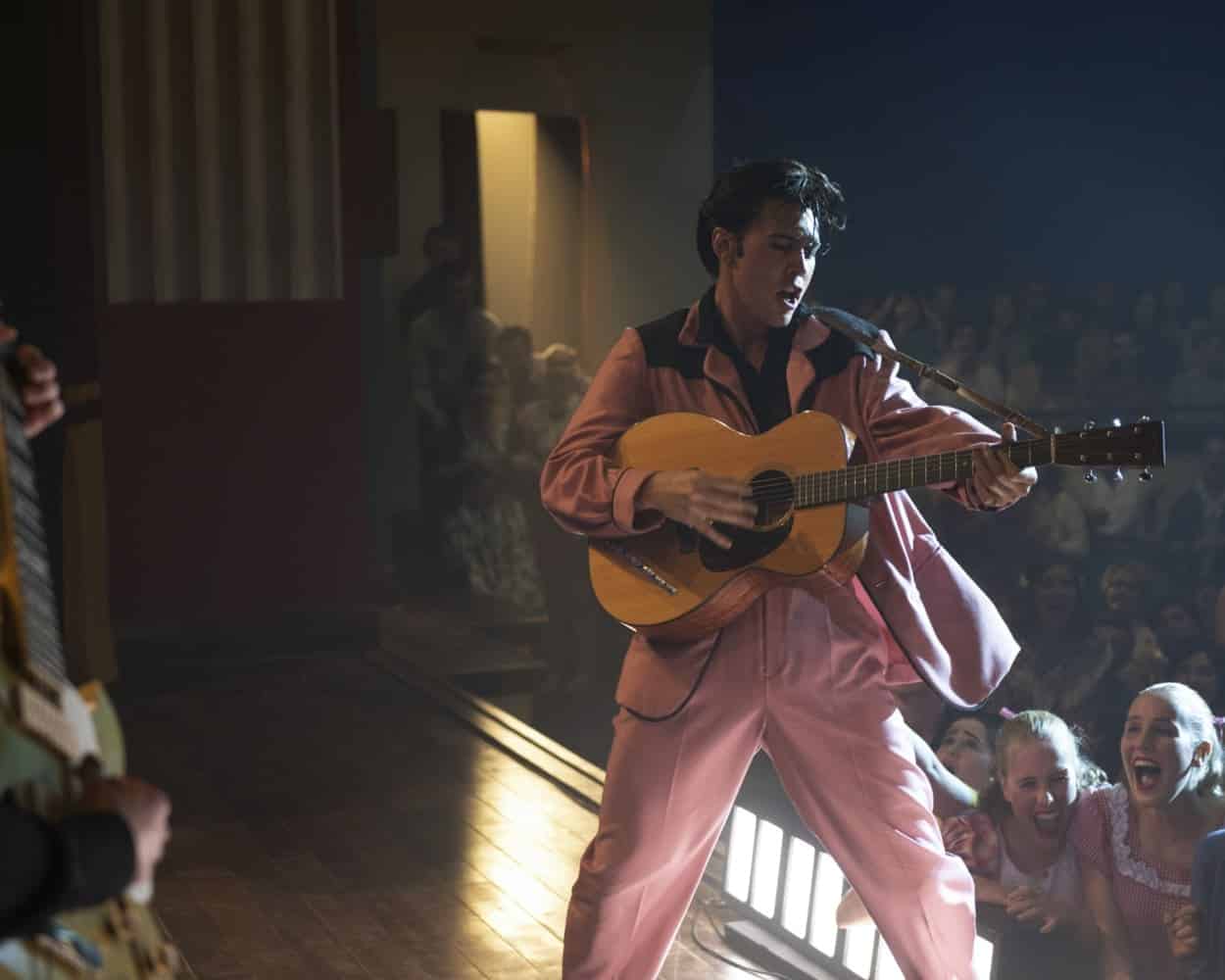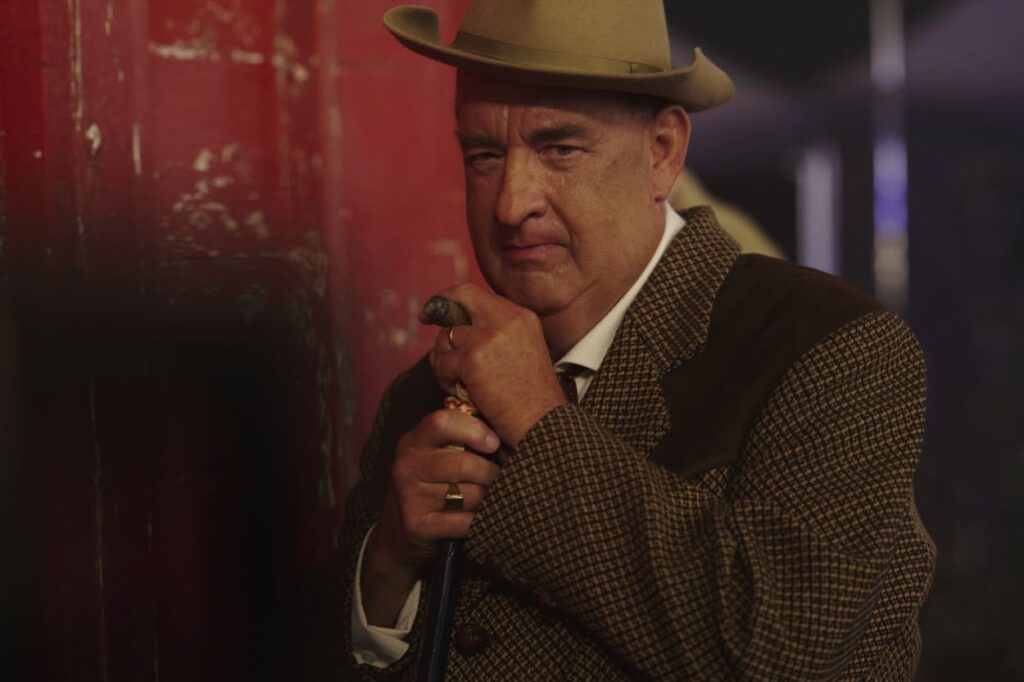It was Elvis’s misfortune to die in 1977, just as punk rock was coursing through mainstream culture. Old and worn out at 42, sick and fat, the King became an instant shorthand for everything that this new wave of music wanted to drive to extinction. He died on the toilet, the story went, with an impacted colon. What a metaphor – the man was literally full of shit.
None of that features in Baz Luhrmann’s Elvis, a gaudy and joyous celebration of the man from cradle to grave, stopping off mostly at the best bits and leaving the dark stuff way off to the sides. This would be terribly problematic, if Elvis were the only source of information about Elvis Presley available. But it isn’t, so it isn’t.
Even so, Luhrmann wants a get-out-of-jail card, and he finds one in the shape of Colonel Tom Parker, the carnival huckster who turned the boy from Memphis into a global superstar and managed his career through all its various incarnations.
This isn’t the story of Elvis but the story of Elvis through the reminiscences of a mortally ill, high-on-meds Colonel Tom, which neatly allows Luhrmann to exculpate the King himself while doing what he does best – stage massive and feverish musical set pieces, all the while distorting the facts visually, tonally and chronologically. All those dodgy decisions – the terrible movies, the drugs, the Vegas residencies when he should have been touring globally, the increasing isolation and paranoia – are all parked at the door of Parker, while Elvis himself is presented as being a man who may not have known much about business but was something of a genius when it came to music.
Which is why Luhrmann got in Tom Hanks in what is supposedly a supporting role, as the wheezy old fraud with no real right to be in the USA (he was an illegal immigrant from the Netherlands). It’s Hanks’s portrayal of the shifty Colonel Tom that gives this biopic one of its claims to specialness. Whereas other films about real people make vague claims on the truth, Colonel Tom allows Luhrmann to duck out of the awkward stuff. He’s Elvis’s sineater.
Which isn’t to say it wouldn’t be a fine film without Hanks. It would. Thanks to Austin Butler’s performance, most obviously in the musical numbers, where Butler captures the essence of Elvis’s performing style, the stance, the way he held a guitar, the moves, the mic drops, the whole thing (mention here must be made of Polly Bennett, his movement coach and choreographer). Other actors were mooted, like Ansel Elgort, Miles Teller and even Harry Styles, but it’s difficult to imagine them topping Butler. He sings too, and when in the later, Vegas-years numbers Luhrmann starts to use Elvis’s own voice instead of Butler’s, the transition is barely detectable. Luhrmann also, sparingly, flashes in actual footage of Elvis, as if to underline what confidence he has in his star’s performance. Name another biopic that would dare do that.
Elvis stops dutifully at all the usual stations on the Presley journey – the poor childhood growing up in a black neighbourhood, Sun Records, the Ed Sullivan Show, the Army, marriage to Priscilla etc before climaxing at what’s traditionally seen as Elvis’s triumph – the 1968 Comeback Special. From here it’s a quick jaunt through the Vegas years and a hasty descent into corpulence, chemical abuse and the early grave.
But Elvis also takes time to doff the hat to the mostly black performers who influenced Presley’s performing style, and there are hair-tingling performances by Gary Clark Jr as Arthur “Big Boy” Crudup, Yola as Sister Rosetta Tharpe and Alton Mason as Little Richard.
A film by a great showman about a great showman, Elvis is a case of director and subject in perfect sync.
Elvis – Watch it/buy it at Amazon
I am an Amazon affiliate
© Steve Morrissey 2023


